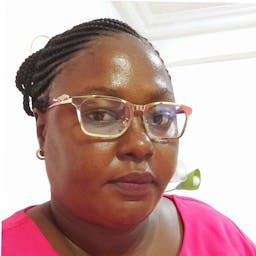AFRICAN GIRLS CRY OUT TO HOME GOVERNMENTS: WE CAN NO LONGER STAND THE PAIN OF ILLEGAL IMMIGRATION!
Jan 21, 2015
Story
Africans! Is illegal immigration our surname?
African Women! Why is our own story different? Who do we blame for our predicament in the diaspora? Some say our nation, for not offering us employment opportunities. Others say patriarchy, for leaving us with limited options. It may also be that we don’t fully realize what awaits us...
March 9th, 2009:
After living with an expired visa for close to one year in China, the Police finally arrested me. They kept me at the station for over 24 hours. Gosh, I was menstruating! Seriously, I was MENSTRUATING. For over 24 hours, I didn’t take a bath. For over 24 hours, I didn’t change my pad! Whose fault was it? Mine or my country’s?
I really can’t tell, but the truth is, as I sat stewing in my own blood, I had to realize the sad truth: I was an illegal immigrant.
March 10 2009
Kong-kong-kong, Gbram, grrrrr …The next day, as the detention cell door opened, about 26 hours after I was caught, I didn’t expect to see what I saw: 21 women crammed inside that cell; six Africans, 13 Chinese, one Thai and one Pilipino.
The question in my head was ‘of all the foreigners, why so many Africans?’
After a refreshing bath offered by Sandra, a fellow Cameroonian, I finally sat down to hear the stories of my fellow African sisters. The first was sitting near me on the bare floor, leaning against the one–meter-tall partition that separated cell from toilet. Staring at the ceiling for a long while, she hadn’t looked at me since I entered. I tapped her shoulder gently.
“What is your name sister?”
“My name is Bupe, from Tanzania,” she replied.
“What brought you here?”
“Expired visa,” she replied.
Bupe had been in the cell for two weeks already. I thought I would never be able to spend that much time there.
I caught the eye of another woman. “My dear, what about you…?”
“Je m’apelle Macayabou, je vien de Congo Brazaville...”
I couldn’t believe it. Macayabou had already spent three months one week in the cell. She had an expired visa too and no one to cover her expenses.
I turned around then and saw Sandra, from Cameroon. I looked at her face closely and I saw beauty that hads faded. Her inner lip had become spotted red. Her two eyes were surrounded by coated blackness. Her face was clouded by dark spots. Day after day locked in the cell had left her unable to walk upright.
I asked her if she has spent about four months in the cell.
“…My sister, I have been in this cell for seven months two weeks…” she said with a grim smile.
“What?” I shouted.
“…Yes, and this is my friend Aka from Togo, we were brought here on the same day,” she pointed at a woman sitting next to her.
Sandra said she had had a heart problem which left her unconscious for three days. She regained consciousness in an army hospital, in chains. When she recovered, she was returned to the cell.
Kelly was from Nigeria. I was told that two days ago she had stopped talking out of frustration and anger: she had been there for five months with no headway.
We, African girls, were all there for visa-related complications. For us to leave, we needed to pay a 5000yuan fine and find someone to buy our plane ticket home. If you couldn’t afford this, you’d be sure to stay in the cell for over seven months before receiving any intervention from the Chinese government.
Many more African women are in this condition the world over.
African governments, please think about your women languishing in foreign detention camps, in jails, and in terrible conditions in the diaspora. We are the flesh and blood of Africa. There is no smoke without fire. If we keep fighting to go out there, it means something is pushing us away from home.
And African women, it is better to live in poverty at home, than to become an illegal immigrant abroad. Let’s think before we make any outward move!
I rest my case!
This article is part of a writing assignment for Voices of Our Future a program of World Pulse that provides rigorous digital empowerment and citizen journalism training for grassroots women leaders. World Pulse lifts and unites the voices of women from some of the most unheard regions of the world.




